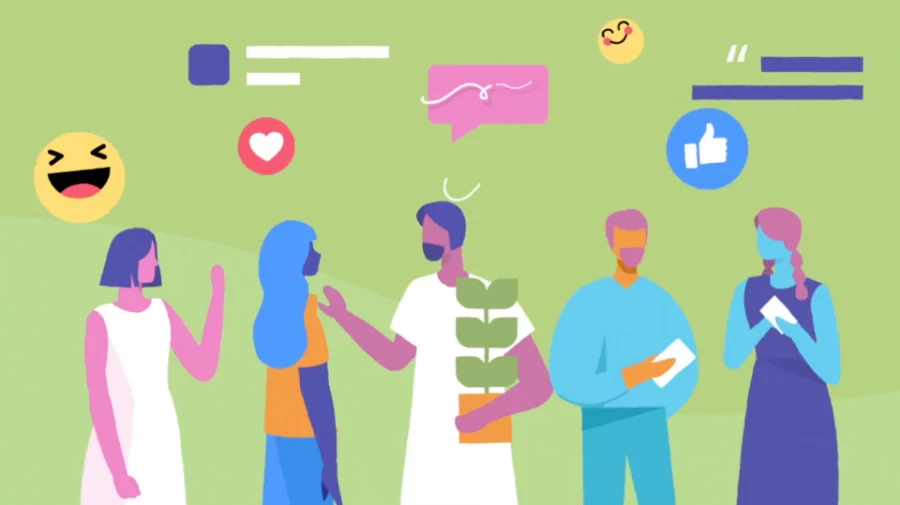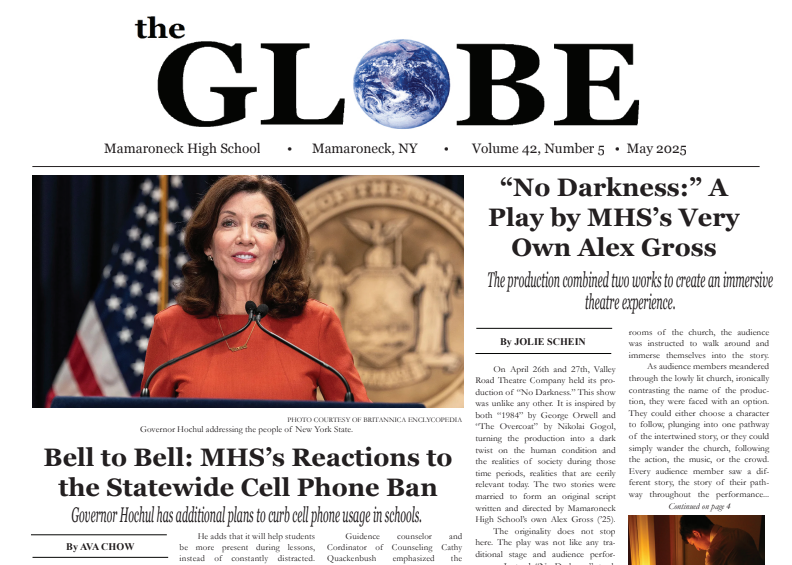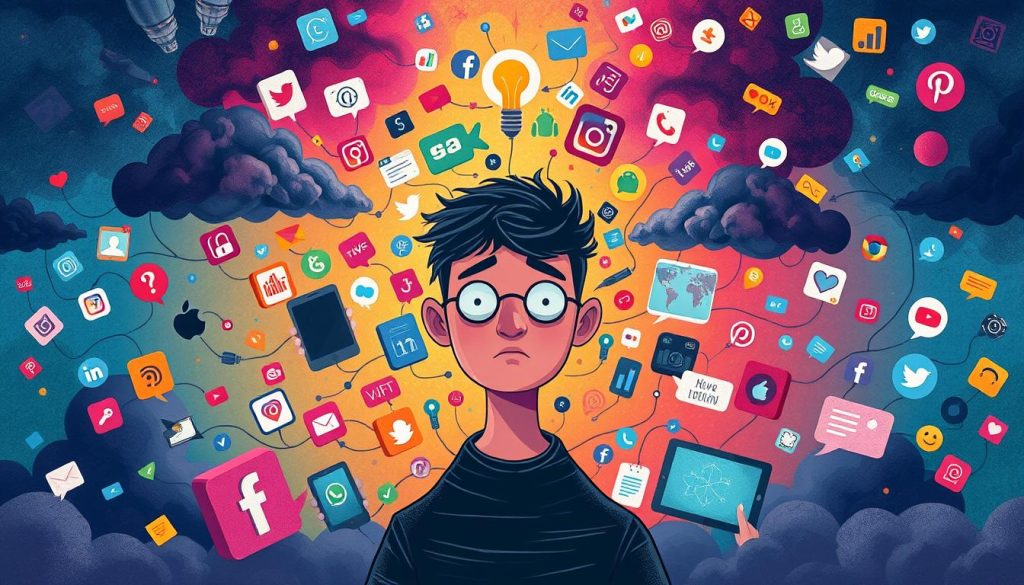Recognizing the Effects of Socialization
Photo courtesy of @DOTTANIMATION
Modern socialization through social media.
March 15, 2021
Socialization is the process by which each of us is initiated into what it means to be a member of our society. This process begins the moment we are born. Studies show that female babies tend to be held more gently than male babies. Mothers tend to talk to their little girls more than to their little boys. The end result of years of this kind of socializing is that gender roles begin to feel not just normal, but inevitable.
But socialization goes beyond inculcating a binary conception of gender. Our families may teach us that certain kinds of people are more acceptable than others, because of their profession, or their appearance, or their ethnicity or race. Our peer groups may shun those they perceive as awkward or different. Our religions may teach us that only certain kinds of love are okay. Our political parties may assure us that all children should be tenderly cared for, unless those children are fleeing the violence that persists in another country.
How can we separate who we really are, from what we’ve been socialized to believe that we are? How can we even figure out what the other possibilities are out there, about who we can be, and what we can do? How do we take those first steps toward living as our authentic selves?Several people recently spoke with the Globe on the issue of socialization. The common strand through their remarks is this: stay open. Take the values that are useful and kind from those around you, and then – be brave. Dare to make mistakes. Dare to be different.
Greg Cuddy, one of the guidance counselors here at MHS, observes that one of the most important things we students can do to broaden our understanding of the world around us, is to engage in extracurricular activities. Even though many clubs can’t meet in person due to COVID, he still believes that there is much to be gained through participating in Zoom-based opportunities to interact. “Giving students and young people exposure to things that might be outside of their immediate circle helps a lot,” says Mr. Cuddy. He adds that, through extracurriculars, students can “gain a sense of self, build character, and have that excitement and passion come out.” He recalls his own sports experiences at White Plains High School as essential in making it possible for him to meet other students of varied backgrounds. Part of what that experience left him with was the desire to help build diverse communities, which is what he does now as a guidance counselor.
Being exposed to different kinds of people while growing up was also important to Karen Graubart, a historian at the University of Notre Dame. She says that her family, her peers, and her hometown all shaped who she became, noting, “My politics were partly formed by my parents, obviously. My mother was pretty liberal, and I was formed by liberal politics.” Her childhood in Queens affected her, too. Dr. Graubart explains, “Growing up in New York meant that I was exposed to people who were really different from me all the time.” She adds, “I grew up sort of thinking that I had things in common with people who weren’t like me.” Finding the commonalities she shares with others is no doubt part of why Dr. Graubart, a white atheist of Jewish heritage from New York City, now finds herself teaching at a Catholic university in Indiana about gender, ethnicity, race, and slavery in colonial Latin America.
Cliff Thompson, a Brooklyn-based writer and painter, similarly confirms the influence of place and family. In his case, though, a lack of diversity in his neighborhood may have paradoxically helped to make him a more accepting adult. Mr. Thompson recalls growing up in Washington, D.C., where, he says, “My neighborhood was all black.” There, he did not experience being targeted on the basis of being an African- American male. He feels his upbringing made it so that he is more receptive to all kinds of people, and states, “I feel that I’m probably more open to different kinds of people than I might be if I had had experiences where somebody was making fun of me because of my skin color or my hair texture or something like that.” Also, he explains how simply having an older brother who collected comic books and cartoons changed his life. Mr. Thompson adds, “I think I’m still on the path that those comic books sent me on, because I became a writer.” Like Mr. Cuddy, both Dr. Graubart and Mr. Thompson agree that their early influences shaped their receptiveness to accepting differences in others.
Mamaroneck is not nearly as diverse as New York City, or Washington, D.C., or White Plains. But neither is it monolithic in any respect. All of us have the opportunity in this town and in this school to meet people from backgrounds different from our own. Moreover, we are all within a short MetroNorth ride of midtown Manhattan and the many opportunities that are there.
We can take what’s best from our socialization and reject the rest, but first we must dare to question what we’ve subconsciously learned. To do that, it helps, as Mr. Cuddy suggested, to try new experiences with new people. We can also set ourselves the task of studying peoples who, at first glance, might seem quite different from us, as Dr. Graubart did. If we’re lucky, we can participate in a supportive community that gives us the strength to find our own path, as Mr. Thompson has.
All of these tactics for self-awareness are available to us here at MHS. We can try out new activities. We can open ourselves to new ideas and new people. We can strengthen the ties we have with those who support us.
We don’t have to live according to someone else’s conception of who we’re supposed to be. Such is the challenge, and the promise, of acknowledging our own socialization.






